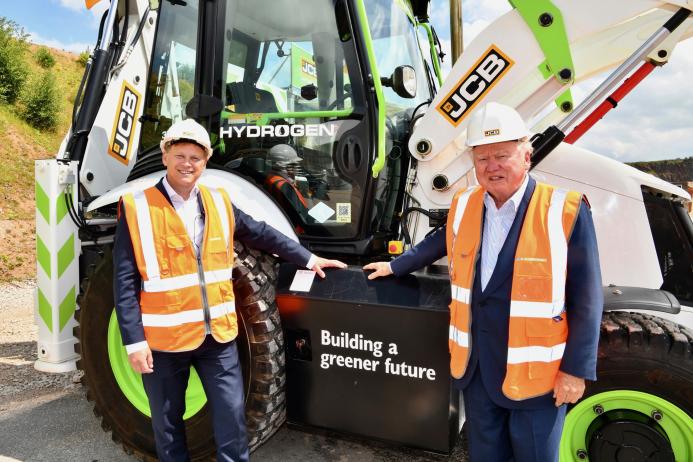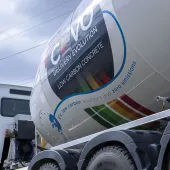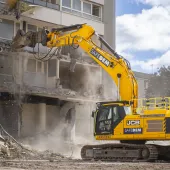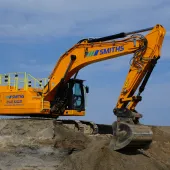Energy Secretary impressed with JCB hydrogen engine development
Grant Shapps challenges JCB to have hydrogen machines working on sites by mid-2024
ENERGY Secretary Grant Shapps has challenged JCB to have its super-efficient hydrogen machines working on building sites and farms by next year – declaring himself ‘impressed’ with the company’s early success in developing engines powered by the zero-carbon fuel.
The Secretary of State for Energy Security and Net Zero visited JCB Power Systems, in Derbyshire, yesterday to see the progress a team of more than 150 engineers have made in developing hi-tech hydrogen combustion engines for use in construction and agricultural machinery. More than 50 prototype engines have been produced so far and several machines are currently undergoing testing.
Mr Shapps said: ‘This is a unique prospect that works well, and I’ve challenged JCB by the middle of next year – by 2024 – to be operating some of these on our roads and on construction sites. And JCB told me that they will be happy to try to achieve that objective, and good luck to them!’
Mr Shapps was hosted by JCB chairman Lord Bamford and JCB chief executive officer Graeme Macdonald. He was told how JCB had successfully launched a range of battery-electric compact machines, with more than 20,000 battery-electric machines already sold. He was shown how battery-electric technology was largely unsuitable for heavier equipment due to the higher energy demands and longer working hours of such machinery in remote locations where access to grid connections is limited.
At JCB’s Staffordshire proving ground, the Energy Secretary drove a hydrogen-powered JCB backhoe loader and tried his hand at the quick and easy task of refuelling the prototype. Mr Shapps added: ‘JCB operate in two fundamentally quite difficult areas to decarbonize: construction and agriculture. I have to say they’re making decarbonization look easy, and I’ve been very impressed with what I’ve seen.
Lord Bamford said: ‘It was a pleasure to show the Secretary of State the great progress JCB’s British engineers are making in developing a zero-carbon solution to power our future machines. They need to be powered by something other than fossil fuels in the future and super-efficient, affordable, high-tech hydrogen combustion engines with zero emissions can be answer for the construction industry and agriculture. What’s more, they can be brought to market quickly using our existing supply base.’
JCB’s emergence as a leader in zero-emission hydrogen technology comes as governments around the world unveil strategies to develop the infrastructure needed to support the use of hydrogen to drive down CO2 emissions. JCB have manufactured engines since 2004, producing around 200 per day at their UK plant in Derbyshire and a further 200 per day at their plant in Delhi, India.










